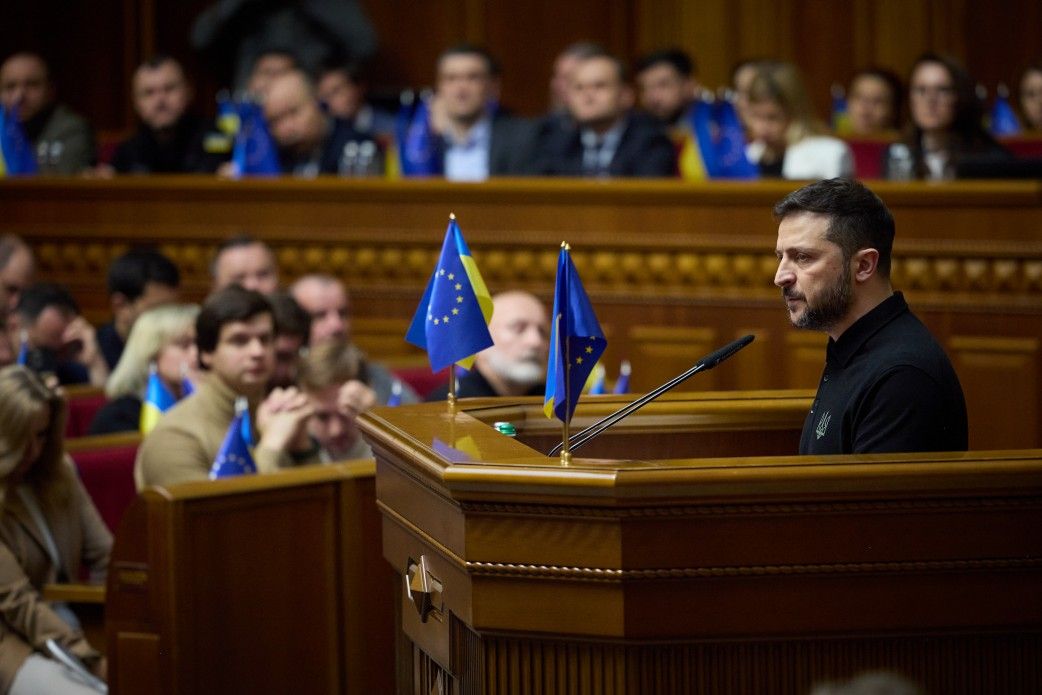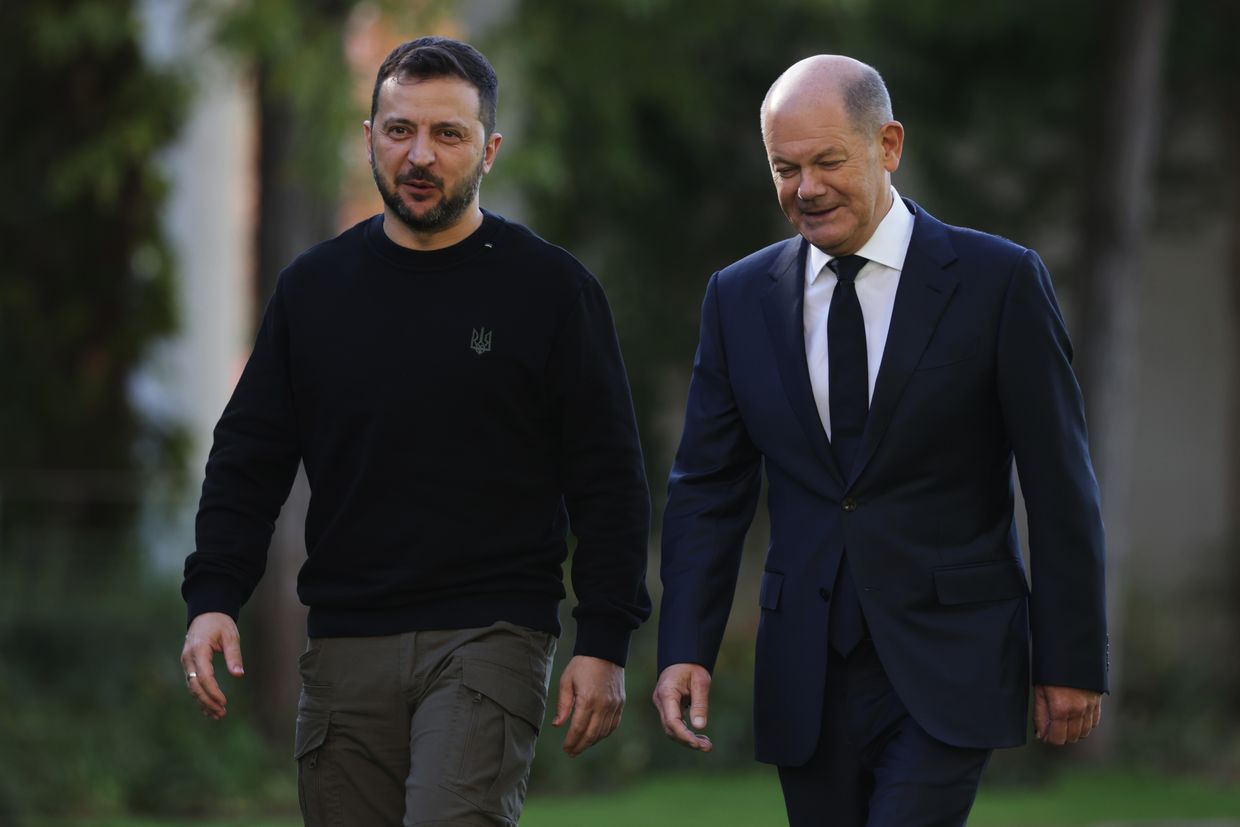German Chancellor Olaf Scholz told lawmakers in Berlin on Oct. 16 that he is willing to talk to Russian President Vladimir Putin about a "just peace" in Ukraine.
Scholz emphasized that he would speak to Putin "if asked" but stressed that no decisions would be made without the input of Ukraine or other Western allies.
In recent weeks, German media have reported on an increased openness from Scholz to speak to Putin about an end to the full-scale war in Ukraine. The two leaders have not spoken since December 2022, the same year the leaders of the U.S., France, and the U.K. last had direct contact.
Earlier in October, Kremlin spokesperson Dmitry Peskov claimed that Moscow had not received a proposal for Scholz and Putin to talk.
The statement came two days after German Foreign Minister Annalena Baerbock said that Putin is not willing to speak with Scholz about brokering peace in Ukraine.
"He refuses to accept peace and every day sends another signal in favor of war and destruction. These days, he is no longer even prepared to speak to (Scholz) on the phone," the German foreign minister said.
It is unclear if any developments regarding a potential conversation between Scholz and Putin have happened since Baerbock and Peskov's comments.














